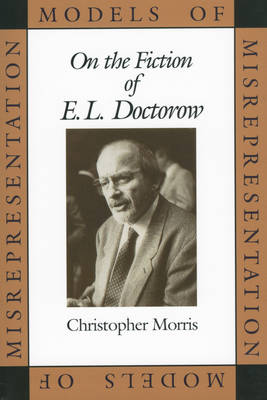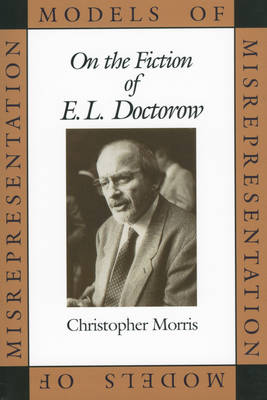
- Retrait gratuit dans votre magasin Club
- 7.000.000 titres dans notre catalogue
- Payer en toute sécurité
- Toujours un magasin près de chez vous
- Retrait gratuit dans votre magasin Club
- 7.000.0000 titres dans notre catalogue
- Payer en toute sécurité
- Toujours un magasin près de chez vous
Models of Misrepresentation
On the Fiction of E.L. Doctorow
Christopher Morris
Livre broché | Anglais
32,95 €
+ 65 points
Description
Models of Misrepresentation: On the Fiction of E. L. Doctorow by Christopher Morris The work of E. L. Doctorow is most often seen as a political and cultural critique of eras of American history, like the settlement of the West, the Gilded Age, the Depression, or the beginnings of the Cold War. In his fiction critics have found searching and subversive questions concerning received national values. At the same time, they have seen him as a literary experimenter, comparing his with the work of such modernist writers as Faulkner and Hemingway. Models of Misrepresentation, an original and comprehensive reading of Doctorow's work, considers both these views under a broader rubric, the struggle for representation in art. The author of this penetrating and persuasive study considers this theme from a philosophical standpoint: How can the writer depict America, or how can the reader interpret its values, when the very capacity of language to represent is put in doubt, as it is in Doctorow's fiction? From this perspective, Doctorow's works form part of the twentieth century's continuing intellectual crisis over the possibility of meaning in art. The understanding of this crisis in the work of Nietzsche, Heidegger, and Derrida shows how the broader issue of representation underpins both Doctorow's political-cultural critiques and his literary experimentalism. This vantage-point sheds new light on some perennial questions that intrigue Doctorow's readers: Who are the narrators of Ragtime and Loon Lake? Why do the novels' left-wing critiques also undermine left-wing solutions? What is the significance of repeated leitmotifs in his work? Why does Doctorow's later fiction seem to return to simpler literary forms? In Models of Misrepresentation the answers to these questions are discovered in the novels' continuing preoccupation with the creative process itself-with their narrators' anxious struggles to make something new in spite of convincing fears of deathly repetition. This preoccupation is also apparent in Doctorow's book reviews, interviews, and essays. It is animated by an intransigent despair. Looking at Doctorow's novels as models of misrepresentation reveals doubts in them more dangerous than those usually associated with social satire or avant-gardism, for they extend to the heart of writing itself. Christopher Morris is a professor of English at Norwich University.
Spécifications
Parties prenantes
- Auteur(s) :
- Editeur:
Contenu
- Nombre de pages :
- 276
- Langue:
- Anglais
Caractéristiques
- EAN:
- 9781604735284
- Date de parution :
- 01-09-91
- Format:
- Livre broché
- Format numérique:
- Trade paperback (VS)
- Dimensions :
- 152 mm x 229 mm
- Poids :
- 408 g

Les avis
Nous publions uniquement les avis qui respectent les conditions requises. Consultez nos conditions pour les avis.






